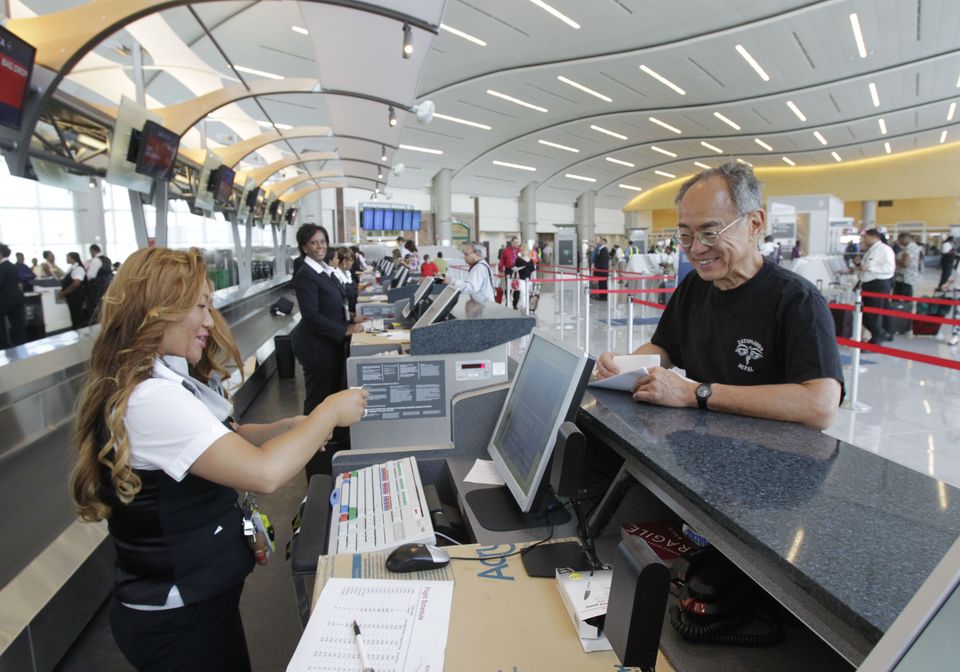As the old saying goes “After you die, whether you go to heaven or hell, you have to change planes in Atlanta.” As America’s busiest airport for the past 14 years, Atlanta is bursting at the seams and considering adding a second airport to accommodate fliers.

Do you think Atlanta needs a second airport?
Due to its large population it is not able to cater the needs of its residents at the best, and therefore having a second airport could bring more competition and, depending on the location, better convenience for Northside travelers.
Which US areas lack competing airports?
Eleven large U.S. metro areas have populations in excess of 4 million; only two of them lack competing airports today. One is Atlanta, which has population of 4.5 million and the other is Philadelphia with a 5.4 million population. Cities similar in size to Atlanta that have two or more airports and include Boston at 4.2 million residents, Houston at 4.9 million, and Washington, D.C. at 4.6 million residents.
Paulding Country served by rapid transits?
In 1975, in anticipation of a second airport, the City of Atlanta purchased 10,165 acres (41.14 km2) of land west of the city in Paulding County for $925 per acre. In early 2007 Paulding County purchased 162 acres (0.7 km2) of the property for a new general aviation airport (opened in 2009 as Paulding County Regional Airport), however Atlanta’s second commercial airport could still be built on the remaining property. Paulding County is unserved by either rapid transit or freeways.
Why Does Atlanta remain a laggard?
Atlanta likes to think of itself as a world-class metro area, but the absense of a second airport is putting “The Big Peach” on the ropes. Last year it ranked sixth among American airports for international travelers, behind New York (JFK), Miami (MIA), Los Angeles (LAX), Newark (EWR) and Chicago (ORD)—even though 2011 was a record year for international passengers in Atlanta. Its low rank is not entirely surprising. Miami, whose airport overtook JFK for the top spot this year, has unrivalled connections—culturally and demographically, as well as simply in the number of flights—with Latin America and the Caribbean. Newark, just across the river from Manhattan, and JFK keep the New York area ahead in the charts, where it should be; it is America’s financial capital, and its biggest and most vibrant city.
What are the problems faced by the residents of Atlanta?
Atlanta residents, by contrast, remain stuck with a monopoly airport, which is situated on the far south side of a sprawling metro area of 4.5 million people that is plagued by some of the nation’s worst traffic congestion. Local businesses surrounding Atlanta also need the additional travel availability so they can draw more customers to the area and grow their businesses.
Who will be benefited by this second airport?
Many metro Atlanta air travelers, especially those in the northern suburbs, would welcome the opportunity to have a second airport, even one that serves mostly short- and medium-haul routes to cities in the region. Still, the overall forecast for international air travel is strong. The International Air Transport Association, a trade-group representing airlines and travel agents, forecasts that international air travel will grow in North America by 3.8% a year to 2015, compared with 3.1% for domestic travel. And the Federal Aviation Administration forecasts a rise of 30% in international passengers through Atlanta by 2015. Despite these positive numbers, carriers such as Delta are opposed to the second location. What’s your opinion on this? Does Atlanta need a second airport? Leave your comments below!
Matt Rosenberg has written extensively about this topic.


